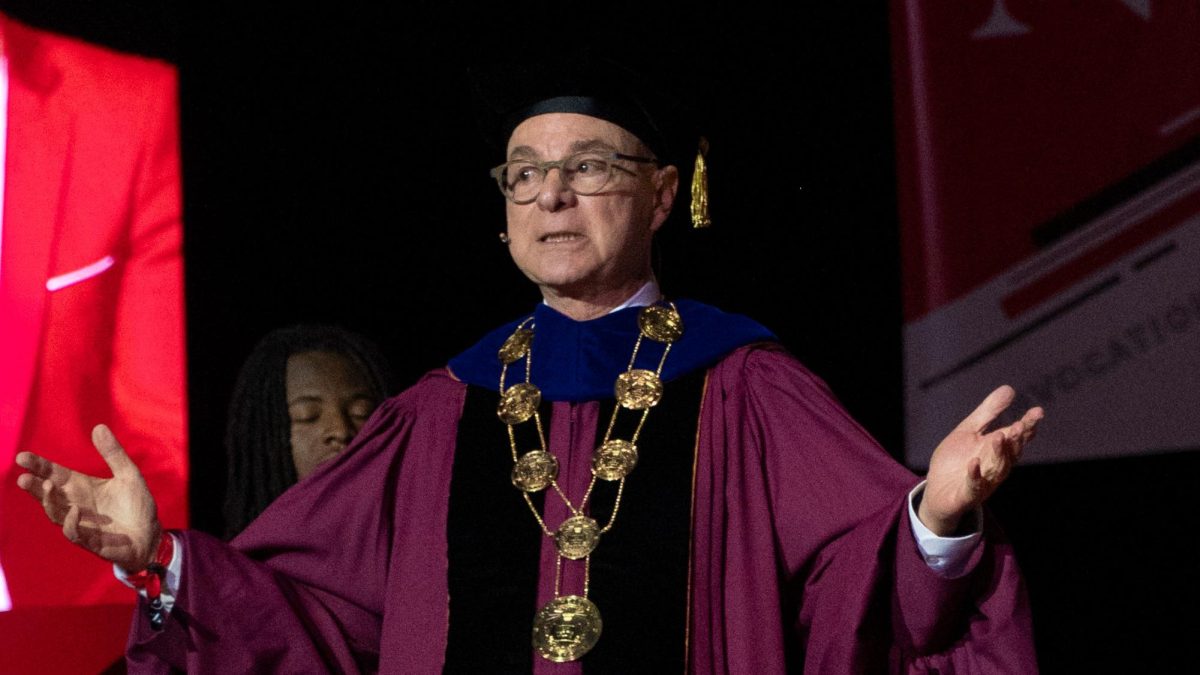Northeastern President Joseph E. Aoun joined more than 320 — and counting — U.S. higher education leaders in signing a joint statement denouncing the Trump administration for “endangering American higher education.”
Entitled “A Call for Constructive Engagement,” the statement is an extraordinary show of solidarity among higher education leaders as academic freedoms are threatened by the Trump administration. When the statement was initially released the morning of April 22, Aoun was not among the around 170 signatories. His name was added April 23 when the page was updated at 1 p.m. The letter continues to be updated as more higher education leaders sign.
The last time Aoun signed his name to a statement about the federal administration’s actions was Feb. 12, when he sent a letter to the university community saying Northeastern remains committed to its “core values,” and that it is “working tirelessly with the relevant associations in Washington.”
“University leaders are working around the clock to mitigate the impacts of executive actions and other sweeping federal funding and policy changes on our teaching and research enterprise, including those that affect the immigration status of many in our global community,” Northeastern Vice President for Communications Renata Nyul wrote in a statement to The Huntington News.
Since Aoun’s February statement, tensions between the federal government and higher education institutions have escalated. In February, the spotlight was on diversity, equity and inclusion programs, as well as threatened research funds. Now, the Trump administration is taking the hammer to academic freedom, as more than 1,500 students on visas have had their legal statuses terminated and billions of dollars in federal funds are in limbo.
“As leaders of America’s colleges, universities, and scholarly societies, we speak with one voice against the unprecedented government overreach and political interference now endangering American higher education,” the April 22 joint statement reads. “We are open to constructive reform and do not oppose legitimate government oversight. However, we must oppose undue government intrusion in the lives of those who learn, live, and work on our campuses.”
The statement, which is being circulated by the American Association of Colleges and Universities, is co-signed by high profile university leaders, including Harvard President Alan M. Garber and Columbia University Acting President Claire Shipman. Several of the signatories are peer institutions of Northeastern, including Boston University, Tufts University, Duke University and Northwestern University.
“Colleges and universities are engines of opportunity and mobility, anchor institutions that contribute to economic and cultural vitality regionally and in our local communities,” the letter reads. “They foster creativity and innovation, provide human resources to meet the fast-changing demands of our dynamic workforce and are themselves major employers.”
The statement comes one day after Harvard announced a lawsuit against several leaders within the Trump administration. The university was the first to publicly resist the administration’s long list of demands released April 11, which included federal audits of the university’s programs and screenings of the values of international applicants.
“The price of abridging the defining freedoms of American higher education will be paid by our students and our society,” the statement reads.
On April 22, The Boston Magazine ranked Aoun 26th in its “150 Most Influential Bostonians 2025” list. The list ranked Boston Mayor Michelle Wu seventh, Massachusetts Governor Maura Healey sixth and Sen. Elizabeth Warren 38th.
The article noted Aoun’s nearly two-decade tenure as president — referring to him as “proverbial dean” of all Boston higher education institutions — through the “recent turmoil on college campuses” and emergence as a knowledgeable voice on artificial intelligence in the higher education landscape.
“When federal funding hung in the balance, Aoun steered Northeastern between new compliance demands and what he called the university’s ‘core values’ in a February letter to students,” the article reads.
Since Trump’s inauguration, Northeastern’s communication about the impacts of federal policy changes has largely come from its “Navigating a New Political Landscape” FAQ page, which is not attributed to any university leader. The FAQ page, which was last updated April 14 at the time of publication, makes no mention of the most recent demands that Harvard has faced.
“On behalf of our current and future students, and all who work at and benefit from our institutions, we call for constructive engagement that improves our institutions and serves our republic,” the April 22 statement concluded.












